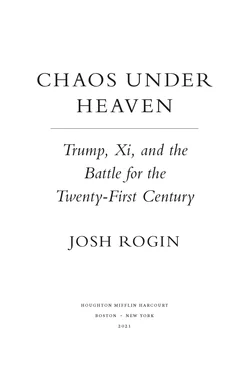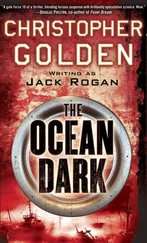“The Director of Policy Planning Kiron Skinner seems to be quite blunt about her deeply-rooted racism,” read a commentary in China’s Global Times, accusing her of disrespecting her own African American community’s victimization at the hands of Caucasians. “What she believes is groundless, as harmony remains a major feature of Chinese civilization.”
This accusation of racism is a feature of CCP criticism of any person or policy in the United States that dares call out China for its aggression or calls for an approach that is more hawkish than the current one. It’s particularly astonishing coming from the regime that is imprisoning over one million ethnic Uyghurs and other Muslim minorities, repressing millions of Tibetans, and systematically discriminating against all non-Han Chinese inside China.
But Beijing didn’t let it go. At the largest international conference of Asian defense ministers in early June, called the Shangri-La Dialogue (named after the hotel that hosts it), China’s state councillor and minister of national defense, Wei Fenghe, brought up Skinner’s remarks in his official speech: “History witnessed the enslavement of Africans, the expulsion of Native American Indians, the colonization in Asia, Africa and Latin America, and the killing of Jewish people. These are scars and tragedies in the history of human civilization which do not go away. Unfortunately, some people recently picked up the decadent idea of the clash of civilizations. As racist and narrow-minded as it is, this is not right. How can we tolerate such a regress of history?”
Wei’s speech was a clear signal the Chinese were feeling confident in their position and their argument that Beijing was pursuing “win-win” outcomes, peaceful development, and all the rest. The Chinese delegation’s confidence was bolstered by the tone struck by countries like Singapore, whose prime minister, Lee Hsien Loong, gave a speech warning against “zero-sum outcomes” and also criticized Skinner’s remarks about civilization and ideology.
If the Trump administration were organized, this event would have been a great opportunity for US government officials in attendance to correct the record, fix the misperception, and push back on the Chinese gaslighting about which side was being aggressive and which side was racist in its policies. But unfortunately, the US delegation was led by an acting secretary of defense named Patrick Shanahan, a tragic figure even in the context of an administration full of them.
The Rise and Fall of Pat Shanahan
Patrick Shanahan, a former Boeing executive, was thrust into the role of acting defense secretary after James Mattis resigned in protest in response to Trump’s sudden decision to withdraw from Syria in December 2018. Speaking on his very first day as acting head of the Defense Department in January, Shanahan said his focus would be “China, China, China.”
Five months later, standing at the podium in Singapore representing the United States at the Shangri-La Dialogue, Shanahan had been nominated to be the defense secretary on a permanent basis, but he was not yet confirmed. This was his chance to show the assembled officials and lawmakers in the audience he fit the role. But in a disappointing performance, he delivered basic talking points on the need for both cooperation and competition with China. He didn’t bother to push back on the Chinese defense minister’s racism accusations or talk about how Skinner’s reference to a clash of civilizations was a misunderstanding.
Minutes after Shanahan’s speech, the Pentagon released its first-ever Indo-Pacific Strategy Report, a sixty-four-page document that declared Asia was the Defense Department’s “priority theatre” and reaffirmed the National Defense Strategy’s declaration that China was a “revisionist power.”
Was this the Long Telegram for China, Pentagon edition? Not at all. For one thing, it only dealt with the military part of the equation. Neither Shanahan nor the report ever got to the larger issue at hand—namely, what were China’s intentions and what does that require us as a country to do? Hoping to force Shanahan to address that point, I asked him in the open plenary session how his promise to elevate the China issue was any different from the same exact promise made by every US defense secretary who had stood behind that same podium.
He responded that the Trump administration had fully resourced its pivot to Asia, unlike past administrations, which wasn’t true. He said the United States was finally talking openly about China’s bad behavior, as if that was something new. And he praised the Trump administration’s engagement with regional allies and partners, which is actually one of the worst parts of the Trump administration’s China policy. “Those are the three areas,” he told me, “where I think fundamentally, if you were to measure the difference, people would look at those and say, ‘This is a departure from what has been done in the past.’”
That was the last major event Shanahan ever spoke at while employed by the US government. He never got confirmed as defense secretary. Later that month, it was revealed that he had failed to disclose that he had been accused of spousal abuse as part of a tragic series of family events years prior that had resulted in the arrest of his then wife, her subsequent violent assault at the hands of their oldest son, and Shanahan’s alleged efforts to hide that son from law enforcement after the attack. When the news broke, Shanahan withdrew from consideration.
Shanahan thought that in the Trump administration, personal scandals were forgivable, and he also wanted to protect his family from the publicity. But he wasn’t really an insider on the Trump team whom the president was willing to stand behind. And when the scandal broke, the White House cut bait. Shanahan resigned in disgrace. He never got to implement his “China, China, China” plan, if he did indeed have one.
Cold War by Another Name
Throughout the Trump administration, officials who were pushing for a pivot to Asia repeatedly came to realize that for a variety of reasons, the money just wasn’t there to make credible the claim that America was shifting its focus to the region. Similar to what had happened under Obama, cabinet members made speeches, strategy documents were released, but then the actual support for doing the things promised got delayed or diverted or just never materialized.
While in Singapore, I met with the head of Indo-Pacific Command, Admiral Philip Davidson, who had replaced Harry Harris after he had become the ambassador to South Korea. Davidson came from Fleet Command, a position that wasn’t focused solely on Asia and wasn’t in the public eye. It was the first interview he had done since assuming command a year prior. There was simply no upside in the Trump administration for generals and admirals to risk speaking to the press.
I asked him the same question I had asked Shanahan in open session: How is this Asia pivot different from all the others? Like Shanahan, he pointed to the new consensus that had allegedly come together in the US government. But privately, Davidson knew that the US government was talking a big game but not doing all that was needed to actually win it.
Davidson wrote a letter in April 2019, later leaked, calling on Congress to provide “immediate and necessary resources” to fill gaps in Indo-Pacific Command’s budget: military construction, Aegis missile defense, the defense of Guam, and much more. He called it his “Regain the Advantage” plan, which was understood to be referring to China. The implicit suggestion was that our military advantage in the Pacific had dangerously eroded.
About a year later, a senior aide to Davidson called me in Washington and asked me for my analysis on why—even at that point—the administration and Congress had failed to give Indo-Pacific Command the money it needed to make their new Indo-Pacific strategy work. I told him if the leadership of Indo-Pacific Command was asking me why they weren’t getting support from Washington, the problem was worse than I thought. I checked it out anyway. There were no good answers. Bureaucratic intransigence, competing priorities, budget delays in Congress, lack of strong leadership atop the Defense Department to advocate these interests, and overall Washington dysfunction. New administration, same claims of a pivot to Asia that were never realized.
Читать дальше











